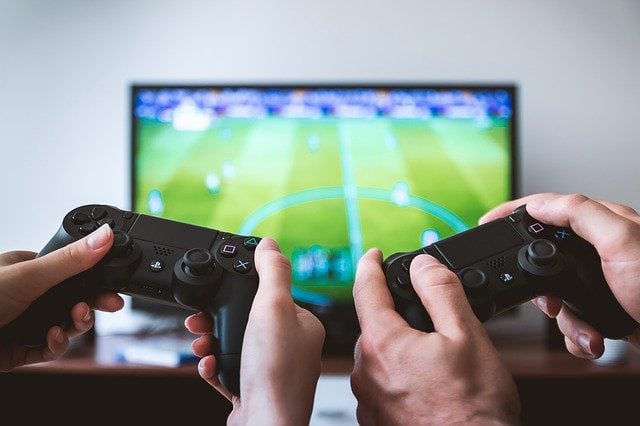That extra piece of chocolate cake, that second helping of ice-cream – you can hear that voice in your head telling you to take just one more bite, even when you’re full. That voice in your head is dopamine, a chemical created by your brain to carry information between neurons.

Dopamine is also known as the motivation neurotransmitter and is responsible for boosting your mood and motivation. It regulates your emotional responses to things, letting you feel pleasure and satisfaction when you do something.
But aside from motivating you to eat more cake, dopamine also performs more serious roles. It boosts your attention and concentration so that you can learn faster and better. It regulates the memory and controls your movement. As a result of its wide ranging implications and functions, there is a strong link between dopamine and mental health.
What is dopamine?
Dopamine is a chemical produced by a group of cells deep within the brain. It is one of the most important chemicals in your body because it controls so much of what you do and how you feel.
To understand why you feel or react in a certain way, you should understand the reward-seeking loops that dopamine creates.
When you indulge in a pleasurable activity, your brain creates a surge that rewards you or makes you feel good. It is also called the reward neurotransmitter for the same reason.
When you see reactions to your latest Instagram post, meet people you love, or win a game, you feel a surge of dopamine. It makes you feel happy and alert, and makes you crave another surge, reinforcing the action as something that gives you pleasure. By boosting your goal-directed behavior, you are likely to seek out more of the same. This is a reward-seeking loop.

The negative effects of the reward-seeking loop
Due to it being released in response to pleasurable activities like indulging in heavy food, having sex or winning a game, dopamine may make the individual start craving more of the chemical reward, leading to addictive behavior. Alcohol and many illegal drugs cause a surge of dopamine, which is partly why people become addicted to them.
People with low levels may be more prone to addiction. When dopamine is created by substances like drugs, it reduces the body’s ability to create its own reward chemical. This is why an addict may feel low when sober. If an addict is created by low levels of dopamine, the addiction is sustained by ever decreasing levels.
What is the relation between dopamine and mental health?
The relationship between dopamine and mental health is substantial. Research has found that it has a primary role in depressive illnesses, especially in the development and spread of mental diseases such as schizophrenia, depression, psychosis and Parkinson’s disease. When those suffering from Parkinson’s disease are given medications to boost their dopamine levels, it has been shown to create massive improvements in their symptoms.
Dopamine is the motivation hormone. It makes you feel energetic and curious, ready to get up and seize the day. When your levels are low, you might find yourself wondering, “Why bother? Is this all life is about?” or you may find less joy in doing what used to give you joy.
Those with high levels are quite naturally more motivated and enthusiastic. They are more likely to approach hurdles with a positive mindset, looking for ways to overcome them rather than being discouraged by them. With higher levels, an individual may be more optimistic and can tackle the blows of life with greater fortitude.

What causes a dopamine imbalance?
With a low level of dopamine, you’ll feel sapped of all energy and love for life. With extremely high levels, you may become more aggressive and display lower will power or impulse control. Higher levels can also lead to conditions that include ADHD, binge eating, addiction and gambling.
Some things that cause low levels are:
- Mental illness
- Stress
- Lack of sleep
- Obesity
- Gorging on too much sugar and saturated fat
- Conditions related to the adrenal glands
- Abusing caffeine, alcohol and other drugs
The symptoms of a dopamine imbalance depend on what is causing the problem but may include:
- Muscle cramps or stiffness
- Digestion problems, such as constipation or acid reflux
- Insomnia or general trouble sleeping
- Slower than usual movement and speech
- Feeling lethargic or a sense of demotivation
- Low libido i.e. sex drive
- Hallucinations
How can I improve my levels of dopamine?
The best approach to increase your dopamine levels is through self-care, lifestyle and dietary changes. Try the following:
Diet changes
Your diet plays a huge role in boosting dopamine. Foods that help your body make it are:
- Almonds
- Avocados
- Bananas
- Meat, fish and eggs
- Dairy and all related products
- Soy, beans and lentils
- Nuts and seeds
- Whole grains
- Foods rich in turmeric, vitamin D and omega-3 fatty-acids
Try to reduce your consumption of the following as they have an inhibiting effect on your dopamine creation:
- Highly processed and refined foods
- High fat
- High sugar
- Caffeine
- Alcohol
Lifestyle changes
Stress is one of the biggest inhibitors of dopamine. When you feel stressed, you may experience symptoms of low dopamine like brain fog or indecision. Exercise and activity help your body and hormones stay healthy and help you maintain a healthy weight, both of which keep your dopamine levels in check.
To help you overcome stress, you might also like to try meditation or practice gratitude, or even get a massage.
Make a conscious effort to get enough sleep and eat healthy. When your body is rested and fuelled by wholesome natural ingredients, you will feel brighter, fitter, and more energetic.

While there are medications and treatments available to boost your dopamine levels, they require an assessment and prescriptions. If you have a condition that results in lower levels of dopamine, you will be advised to take the right medication and should not consider any of the above recommendations as intended to replace prescribed medicines.



